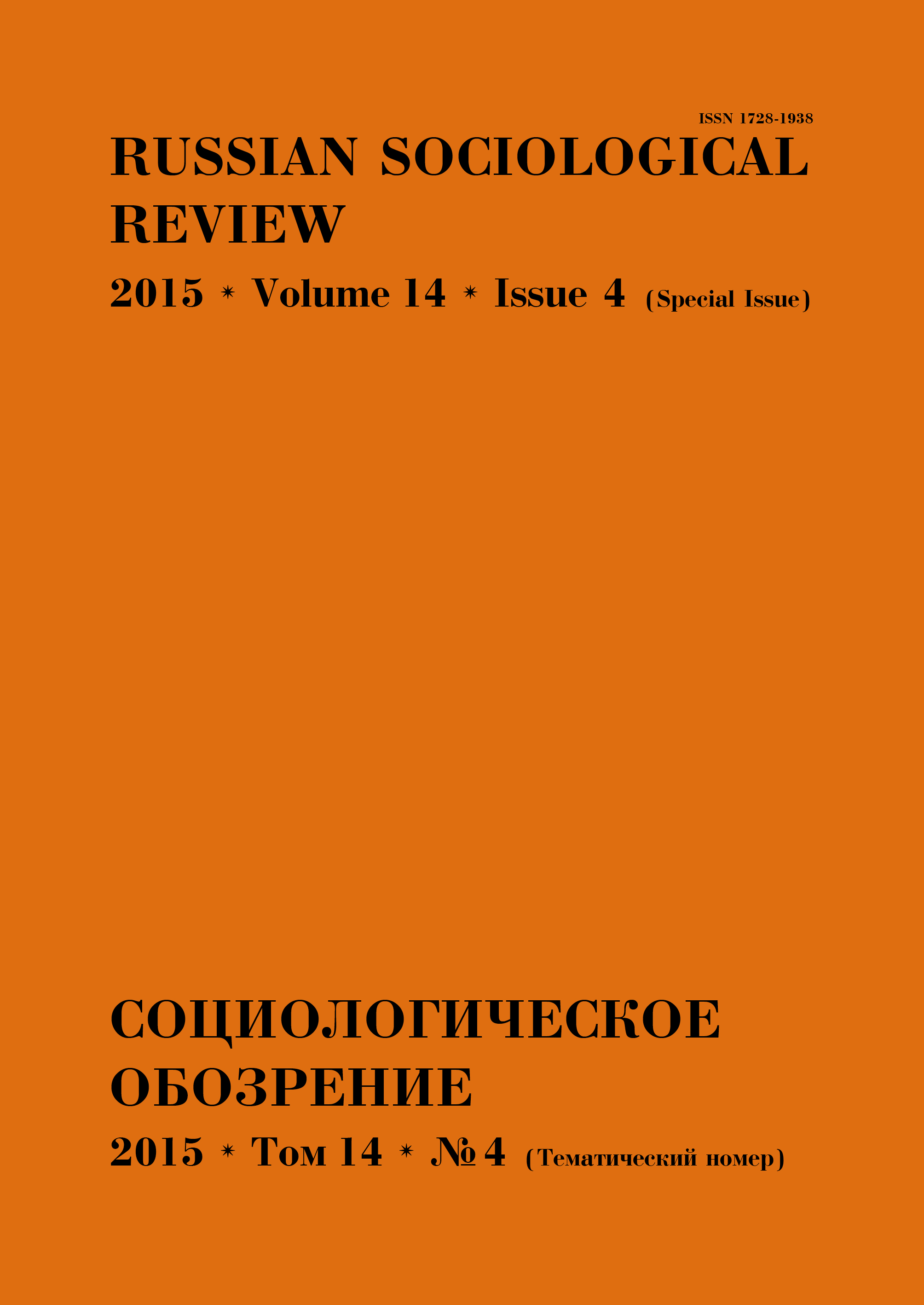10 тезисов о войне и социальном порядке: предварительные рассуждения о конститутивной функции вооруженных конфликтов
Ключевые слова:
Карл Шмитт, модерн, война, социальный порядок, Карл фон Клаузевиц, Мишель Фуко, Томас Гоббс, структурное насилие
Аннотация
В начале статьи формулируется ее замысел, заключающийся в экспликации концептуального подхода к войне как важнейшему структурному элементу и механизму поддержания социального порядка. Утверждается существование устойчивой традиции теоретизирования, в рамках которой традиционным является аргумент о социальной функциональности структурного насилия, позволяющий интерпретировать войну как особый тип социальности. В качестве представителей этой условной линии аргументации называются такие ключевые фигуры истории идей, как Томас Гоббс, Карл фон Клаузевиц, Карл Шмитт и Мишель Фуко. Далее выдвигаются 10 тезисов, в которых проблематизируются эвристические аспекты войны применительно к теории социального порядка. Тезисы сопровождаются краткими комментариями. В них констатируется амбивалентный статус топики войны в философской традиции и социологической классике, так и не создавших полноценной теории войны, релевантной с точки зрения социальной теории. В основных содержательных тезисах говорится о том, что опыт войны имеет конститутивный характер для человеческих обществ. Здесь же реконструируется линия аргументации, подчеркивающая конститутивную функцию войны применительно к социальным институтам и политическим порядкам. Также подчеркивается роль войны как важнейшего фактора общественной трансформации в Новое время, который часто остается недооцененным в социологической теории. В заключение формулируется задача аналитической экспликации функциональности организованного насилия применительно к структурам социального действия, характерным для эпохи Модерна. Утверждается, что в реконструированной в статье социально-теоретической перспективе война может выступать эвристическим ключом к пониманию самой природы социального, позволяющим не только рассматривать войну как культурно-универсальный феномен, но и более реалистично анализировать структурную роль насилия в процессах производства, воспроизводства и трансформации социальных порядков.Скачивания
Опубликован
2015-12-23
Как цитировать
КильдюшовО. (2015). 10 тезисов о войне и социальном порядке: предварительные рассуждения о конститутивной функции вооруженных конфликтов. Социологическое обозрение, 14(4), 140-149. извлечено от https://cfjournal.hse.ru/index.php/sociologica/article/view/52
Выпуск
Раздел
Дискуссия




